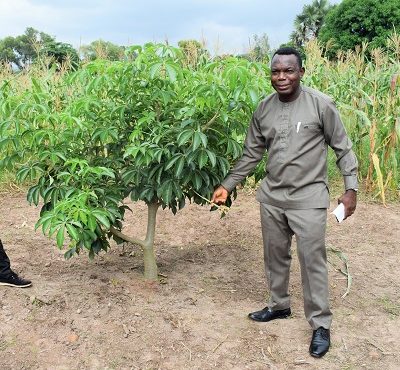HTU develops ‘resilient’ baobab seedling

The Department of Agro-Enterprise Development of the Ho Technical University (HTU) has achieved a record in the re-breeding of baobab seedlings domestically for rapid multiplication.
The research team of the university has come out with a baobab tree which took 27 months to flower instead of the usual 14-27 years.
Dr Kenneth Fafa Egbadzor, the Principal Engineer of the research team said that the demonstration plant proved resilient to human activities and stray animals.
He said that baobab had more than 300 uses in the food, cosmetic, medical and art sectors.
Dr Egbadzor said that the Vitamin C, zinc and iron content of the plant, played important roles in addressing desertification and climate change.
He said that the plant remained undomesticated and under-utilised in spite of its usefulness.
“We argued in a review to be published soon that baobab could be more important economically than the country’s foreign exchange earner, the cocoa.
“We are advocating that the baobab be added to the tree crops selected by the government for development,” he added.
Dr Egbadzor maintained that domestication and cultivation of the baobab would largely contribute to the achievement of the Sustainable Development Goals.
Professor Ben Q. Honyenuga, Vice Chancellor of HTU has lauded the Faculty of Applied Science and Technology of the institution for re-engineering the baobab to flower in a short time, saying that bore testimony to the fact that a little resolve could produce huge results.
From Alberto Mario Noretti, Ho














